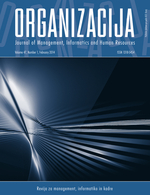Long-term Digital Preservation in E-government – a Case of Slovenia
Abstract
The use of information and communication technology and its widespread presence cause a vast amount of data to be created in the public and private sectors every day. The widespread presence of e-government sites, services and communication in the developed world add even more data. This digital data does not only represent the accountability and reliability of the processes, steps and decisions taken by organisations, but also a source of information for future generations. This paper discusses the issue of long-term digital preservation with a special focus on long-term digital preservation in public administration. It analyses problematic issues, current development trends in this area, and principles and solutions that can be found around the world. The paper focuses on Slovenia as one of the EU countries that has most effectively developed its e-government during the last decade. It analyses the situation in Slovenia through legal, organisational and other changes that have appeared over the last few years, and considers this as a model for possible long-term digital preservation. To describe the situation for digital preservation in Slovenian public administration, the results of empirical research made in 2007 are used. The paper uses theoretical background from the field of digital preservation and empirical results to show the important link between e-business, e-government, e-governance and digital preservation. It demonstrates that since Slovenian public administration has strictly specified business processes, the task of implementing digital preservation is much easier. The same concepts can be transferred to the private sector in Slovenia or anywhere else in the world.
Refbacks
- There are currently no refbacks.

